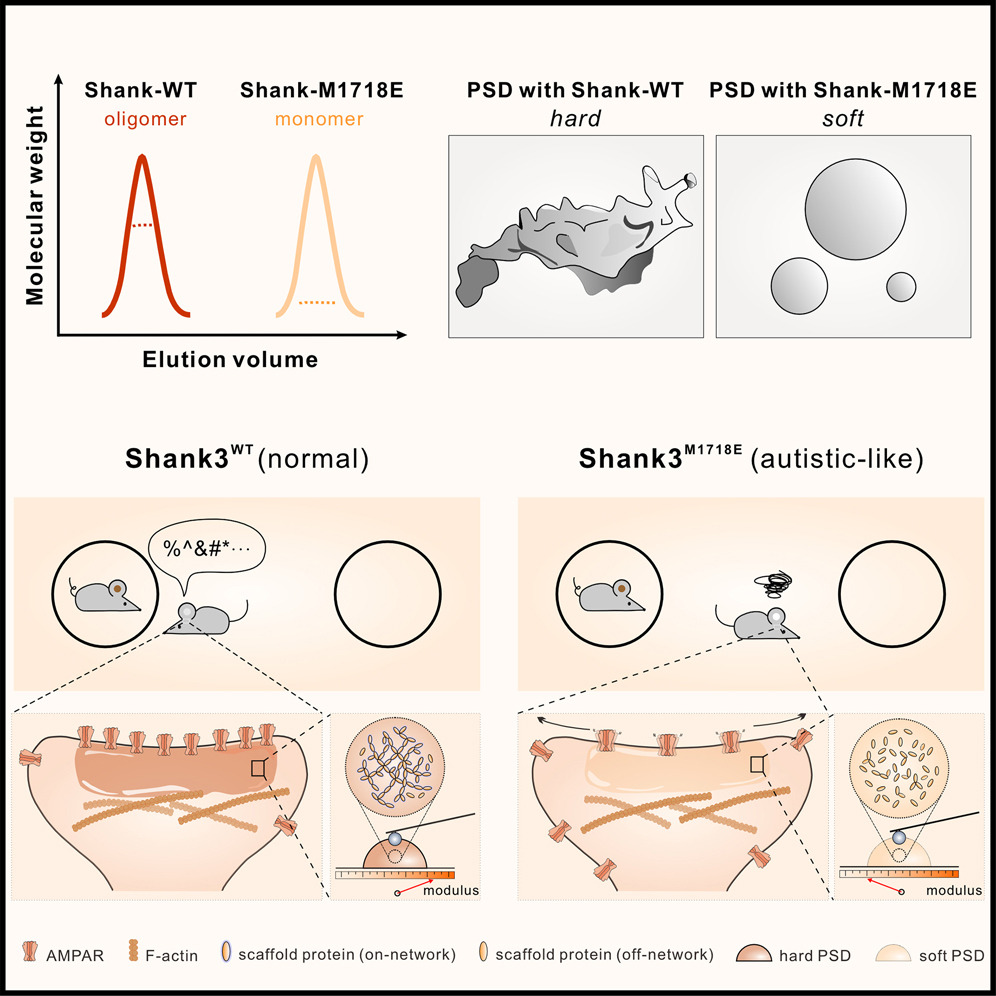Effects of cosolvents and crowding agents on the stability and phase transition kinetics of the SynGAP/PSD-95 condensate model of postsynaptic densities
2022.02.16Cinar, H., Oliva, R., Wu, H., Zhang, M., Chan, H. S., & Winter, R. (2022).The Journal of Physical Chemistry B, 126(8), 1734-1741.
The SynGAP/PSD-95 binary protein system serves as a simple mimicry of postsynaptic densities (PSDs), which are protein assemblies based largely on liquid–liquid phase separation (LLPS), that are located underneath the plasma membrane of excitatory synapses. Surprisingly, the LLPS of the SynGAP/PSD-95 system is much more pressure sensitive than typical folded states of proteins or nucleic acids. It was found that phase-separated SynGAP/PSD-95 droplets dissolve into a homogeneous solution at a pressure of tens to hundred bar. Since organisms in the deep sea are exposed to pressures of up to ∼1000 bar, this observation suggests that deep-sea organisms must counteract the high pressure sensitivity of PSDs to avoid neurological impairment. We demonstrate here that the compatible osmolyte trimethylamine-N-oxide (TMAO) as well as macromolecular crowding agents at moderate concentrations can mitigate the deleterious effect of pressure on SynGAP/PSD-95 droplet stability, extending stable LLPS up to almost a kbar level. Moreover, the formation of SynGAP/PSD-95 droplets is a very rapid process that can be switched on and off in seconds. In contrast with the marked effects of the cosolutes on droplet stability, at the cosolutes’ respective biologically relevant concentrations, their impact on the phase transformation kinetics is rather small. Only a high TMAO concentration results in a significant kinetic retardation of LLPS. Taken together, these findings offer new biophysical insights into the neurological effects of hydrostatic pressure. In particular, our results indicate how pressure-induced neurological disorders might be alleviated by upregulating certain cosolutes in the cellular milieu.
- Recommend
-
2025-10-22
IQSEC2/BRAG1 may modulate postsynaptic density assembly through Ca2+-induced phase separation.
-
2025-08-22

Shank3 oligomerization governs material properties of the postsynaptic density condensate and synaptic plasticity.
-
2025-08-21
Modulating synaptic glutamate receptors by targeting network nodes of the postsynaptic density condensate.
-
2025-08-19
Current practices in the study of biomolecular condensates: a community comment.
-
2025-06-10
Phase separation instead of binding strength determines target specificities of MAGUKs.

